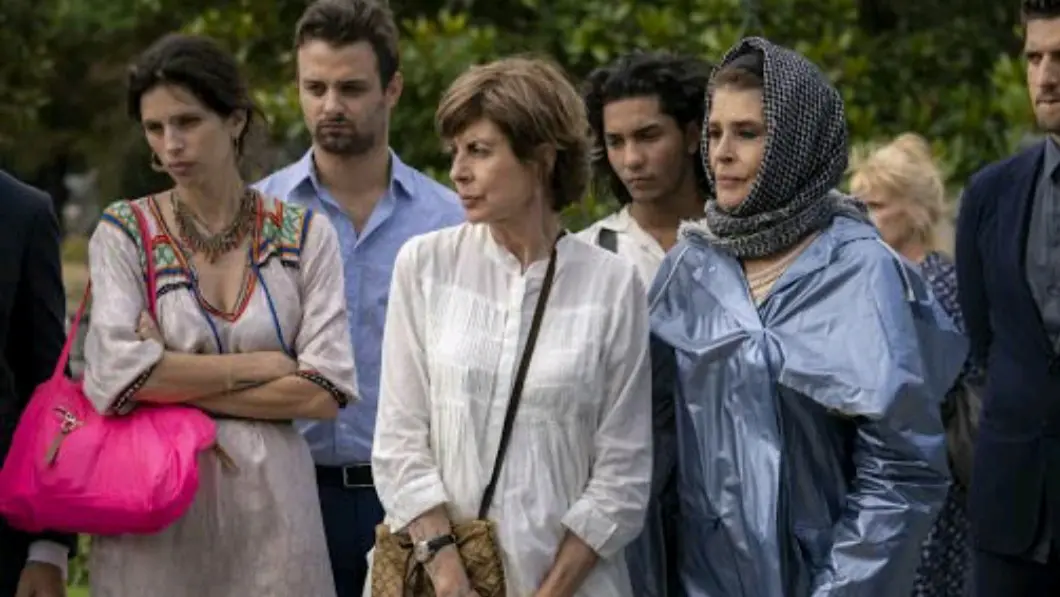Summary
Maïwenn’s DNA (ADN) is a contemplative film about who we are and where we come from.
This review of DNA (Netflix) is spoiler-free.
Maïwenn’s film DNA (Netflix, also known as ADN) is a quiet and contemplative work about how the power of painful loss can shine a light on love and where you come from. Her film doesn’t necessarily break down film myths or walls besides the depiction of showing families cherishing and respecting their elders, which is rare in American cinema. It uses that event, the tender love of a grandparent and the loss of that love that never goes away, to tell a story about identity and who we are after the loss of the guardian of family history.
Maïwenn wrote the screenplay and it is a personal work. The Paris born actress and filmmaker, formally married to director Luc Besson, comes from French, Vietnamese, and Algerian descent. Her films, certainly the best ones such as Pardonnez-Moi, are semiautobiographical. She plays Neige and her story talks about the loss of her grandfather, Emir (played by French actor Omar Marwan). A man is who was proud of his heritage and his role in the Algerian military and politics. When he passes, the family comes together, and quickly find out why. Emir was the glue that kept the family together.
His passing has brought up old wounds and the protective barrier of having the children simply shut their mouths is now gone forever. This sends Neige down a road of alcohol and the only nourishment seems to be the occasional martini with an olive in it. Family is a messy thing and one of the few relationships that remain stable even under the most turbulence. Maïwenn’s screenplay gets that right and Neige’s siblings always have her back.

The film’s best scene comes from Neige and her mother, Caroline (the wonderful Fanny Ardant). In DNA‘s (ADN‘s) best scene, Neige describes how the sight and even smell of her overtly critical mother makes her skin crawl. Ardant’s Caroline, whose strong and resilient façade begins to be chipped away at each hurtful word. It’s a powerful scene and one of the best of any international film, certainly French, I have seen this year.
However, where the story falters is when Maïwenn’s screenplay focuses on everyone else’s faults, except her own. Sure, we see her become unhinged by alcohol and starvation. Since the film is semi-biographical, we don’t get the specific mental health aspects that come with alcohol dependence. Too much of that is covered up with the obsession of finding out her family history. Her then trying to find peace by applying for Algerian citizen needed more context.
What I will say about Maïwenn’s performance is that it certainly drew out the personality traits of characters being broken down by alcoholism. Neige is certainly impatient, has extremely low self-esteem, is defensive, withdrawn, and impulsive. It’s a caustic character played to be likable and relatable, while still being a pain that won’t go away. We all have one or two of them.
DNA (ADN) is the type of family drama that brings a slice of life instead of taking a piece from a well-known recipe. Its unique cultural perspective is what drives the story. Yes, it could have used a bit more structure, more insight into its protagonist, and less self-indulgence, but it works none the less. It’s a relaxed, contemplative style that is honest and at times, moving. If anything, it is certainly a singular Maïwenn film experience.
What did you think of DNA on Netflix? Comment below.




